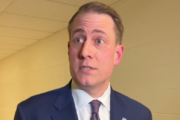When it comes to accumulating wealth, women are increasingly taking the lead. The BMO Wealth Institute estimates that women now control 51 percent of personal wealth in the U.S., totaling approximately $14 trillion in assets.
Despite that achievement, women continue to face unique personal and professional challenges that often make managing that wealth difficult.
As women’s roles evolve, both in the workforce and at home, making the right moves where saving and investing are concerned is a must. Here are the most pressing reasons why women should be willing to break the ice and connect with a financial advisor.
[See: 11 Great Investing Tips for Women.]
The pay gap remains. According to the Census Bureau, the gender pay gap in the U.S. is closing but women still earn 79 cents on the dollar compared to men. That’s an issue women should be prepared to deal with, says Stacy Francis, CEO of Francis Financial and founder of New York nonprofit organization Savvy Ladies, which provides free financial education to women.
“What few people realize is that the gender gap not only affects women’s current financial stability, but their future financial security. Since retirement income is based on the accumulation of lifetime savings, the pay gap is translating into a very significant retirement wage gap,” Francis says. A financial advisor can help with developing strategies to save more when making less.
Women are more likely to take a break from the workforce. AARP’s 2015 Caregiving in the U.S. Report shows that 60 percent of caregivers in the U.S. are female. For some women, taking a leave of absence from their jobs is necessary to care for an aging parent, an ill spouse or young children.
A side effect is that they’re not able to continue padding their 401(k) or another retirement plan. Mel O, a certified financial planner with Hot Moon Financial in Las Vegas, says that’s a recipe for trouble.
“Women underestimate the potential implications of caring for a loved one or spouse in a long-term care situation. Once the family member or spouse dies, they find themselves mentally and physically exhausted and they’re also dealing with severely depleted financial resources,” O says.
A financial advisor can help you keep your retirement outlook a priority as a caregiver or if you’re handing over the care of a spouse or parent to someone else. Chris Hammond, a financial advisor with Retirement Wealth Advisors in Grand Rapids, Michigan, believes that’s particularly important for married women.
“Long-term care protection for a husband and a wife is important in many cases,” he says. “If a woman’s spouse goes into the nursing home, it can be financially devastating. Medicaid pays for much of the nursing home care in the U.S. today, but it requires the couple to spend down the bulk of their assets. The healthy spouse may only keep a small portion of what was once a large retirement nest egg. Proper planning can help avoid this.”
[Read: Lessons From 7 Women Who Broke Wall Street’s Glass Ceiling.]
Different life expectancies mean different long-term planning needs. Men and women are both living longer but statistically, women are more likely to outlive their male counterparts.
Certified financial planner Andrew Gipner of Longview Financial Advisors in Huntsville, Alabama, says that longevity is the most important thing women need to keep in mind when mapping out their financial futures. He points to Social Security planning for married couples as an example of how life span impacts wealth.
“Many times, I’m looking for ways to maximize Social Security for the spouse that had the highest income,” he says. “More often than not, it’s the husband who’s earned more over the course of his career and has the higher estimated benefit. When the husband passes away first, the wife will receive that benefit but if there are additional investment and retirement assets, she may not have to draw as much from that bucket.”
Women have different investment styles. Studies repeatedly show that men and women often move in opposite directions with their investments. Differences in financial goals also play a part in how women invest and save.
According to BlackRock’s 2016 Global Investor Pulse Survey, 28 percent of women said they’re focused on building wealth, while 35 percent of men said the same. Men were more likely to choose stocks, while 71 percent of women preferred to keep more of their assets in low-return cash.
“The top mistake women make when it comes to investing or planning for retirement is being too conservative in their portfolios,” says Lauren Zangardi Haynes, a certified financial planner and investment management analyst with Evolution Advisers in Midlothian, Virginia.
Getting expert guidance from a financial advisor can be the push that some women need to step outside their comfort zone and increase their risk appetite.
Cary Carbonaro, certified financial planner and author of “The Money Queen’s Guide: For Women Who Want to Build Wealth and Banish Fear” says that to compensate, women must be willing to save more, consider working longer and be more aggressive.
“There is no magic bullet,” Carbonaro says.
Looking for a fiduciary is the first step in finding an advisor you can place your trust in, Gipner says.
“There should be a verbal and written understanding that the advisor has your best interest in mind. Financial planning is an ongoing process and having a working relationship with an advisor is very beneficial in most cases. ‘Is the advisor someone you feel comfortable with?’ is a question women should be asking.”
Financial advisors work with multiple clients but that doesn’t mean women must settle for one-size-fits-all advice.
“Women should look for an advisor who’s willing to listen and takes the time to make sure they understand the advice that’s being offered,” O says. “You need someone who’s going to discuss strategies specific to your situation as well as the potential impact of things that could affect your finances in the future.”
Do your homework if you decide to go the DIY route. The biggest mistake women make with handling their own wealth management, according to Paul Ruedi, CEO of Ruedi Wealth Management in Champaign, Illinois, is not recognizing what it is. Second to that is panicking themselves out of following a perfectly good plan. For some women, that may be a reason to rethink going it alone.
[Read: How to Know When You Need a Financial Advisor.]
“Most of what a great advisor does that’s of value is to keep people from blowing themselves up,” he says.
More from U.S. News
10 Tips for Couples and Young Families to Build Wealth
9 Ways to Harness the Growth of Latin America
11 Ways President Trump’s Tax Plan Could Affect Americans
4 Reasons Women Should Consider Hiring a Financial Advisor originally appeared on usnews.com







